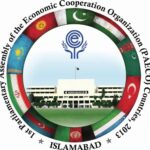The US troop withdrawal from Afghanistan has led to increased violence in Balochistan by Pakistan Taliban.
The revival of the Pakistani Taliban is not only linked with the growing turmoil in neighbouring Afghanistan caused by the US troop withdrawal but also to growing differences between Pakistan and the Afghan Taliban, including over Pakistan’s growing new strategic engagement with the US, wrote Salman Rafi Sheikh in an article in Asia Times.
The Afghan Taliban understand Pakistan’s insistence on establishing an inclusive political government in Afghanistan is a result of its efforts to recalibrate its relations with the US post-withdrawal.
US troop withdrawal from Afghanistan and Pentagon overtures to Islamabad have sparked new waves of terrorist violence in Balochistan.
The growing perception was confirmed when Pakistan said that its “war on terror” era contracts to provide US forces air and ground access to Afghanistan via its bases remain “valid and operational.”
The Afghan Taliban were quick to “urge neighbouring countries not to allow anyone to do so” and that “if such a step is taken again, it will be a great and historic mistake and disgrace.”
The emergence and existence of Taliban-linked groups like the Al-Qaeda-linked Tehreek-i-Taliban (TTP) in Pakistan, of course, is rooted in Pakistan’s participation in the US-led global “war on terror.” Most Taliban groups in Pakistan are under the TTP’s umbrella.
The fact that the TTP’s resurgence is coinciding with Pakistan’s apparent willingness to re-establish a military alliance with the US shows how anti-US sentiments could once again become the linchpin of these groups to continue their jihad vis-a-vis the Pakistan state, wrote Sheikh.
Indeed, recent Pakistan Taliban attacks signal that any move made by Islamabad to allow the US access to military bases will plunge all of Balochistan into instability and violence.
Meanwhile, Pakistani authorities have publicly said they will not allow any foreign boots on the ground.
Baloch separatist groups have likewise signalled they will leverage the Taliban’s ramped-up activities to expand their attacks against Pakistani military forces, wrote Sheikh.
Baloch separatist groups, while not inspired by sectarian outfits or the Taliban, seek to establish an independent Balochistan state due mainly to the perceived systematic exclusion of their people from the political and economic structures of the state, reported Asia Times.
They see the China-backed Gwadar Port project as an extension of that exclusion. The 2019 Baloch militant attacks in Gwadar led the Pakistani army to fence off the port of Gwadar, in a bid to calm Beijing’s nerves amid flagging investment commitments.
The attack was a result of what local sources describe as systematic exclusion of the local population from employment at the port, as well as the selling of Baloch land to local and international companies for infrastructural development projects, Asia Times reported.
This is apart from the fact that China has already acquired operational rights for the port for the next 40 years, with almost 91 per cent of total port profits scheduled to be reaped by Beijing.
While the Baloch groups refer to China as an “imperial power”, the Taliban’s attacks on Chinese projects and officials are part and parcel of their agenda to force the Pakistan state into political submission, wrote Sheikh.
Notwithstanding the various reasons driving these groups, Balochistan is undeniably on the verge of a major relapse into multi-dimensional instability, one that will result in an increased Pakistan military presence in the already heavily paramilitary- and military-patrolled province.
Indeed, reports indicate the Pakistan military is already on the hunt for land in Balochistan to build a new air force base that could conceivably allow for US access and operations, Asia Times reported.
For the Baloch people, especially hard-line separatists, more militarisation will bolster their political and economic exclusion narrative, one that already views the province as a “Pakistani colony”, and fuel more anti-state violence that by association will target both Chinese and US interests.
Balochistan is now in the throes of surging Taliban-linked militancy, a clear signal that America’s troop withdrawal is fomenting new instability in the region, wrote Sheikh.
The rising Taliban and Baloch group attacks are separate from ongoing targeted sectarian killings of Balochistan’s minority Hazara community.
Punjab-based militant groups, such as Lashkar-e-Jhangavi (LeJ), inspired by their sectarian ideology to “purify” Pakistan of “unbelievers” and “infidels”, continue to attack the beleaguered community. In one of its latest attacks, the group brutally killed 11 coal miners in January 2021.
Prime Minister Imran Khan’s response to a recent Hazara community sit-in in Quetta showed once again that the Pakistani state is unwilling to curb sectarian militancy that has long-targeted religious minorities, including the Hazara people and other Shia sects, wrote Sheikh.
With Balochistan fast turning into a hub of sectarian, Islamist and nationalist militancy, the province’s envisioned future as a new hub of China-financed economic activity looks bleak, reported Asia Times.
The situation owes largely to the Pakistani state’s docile response to sectarian killings and its unwillingness and inability to control groups like the LeJ. (ANI)













